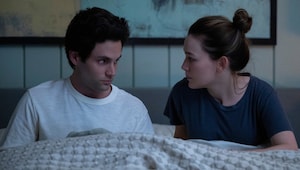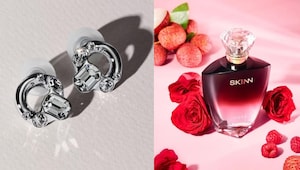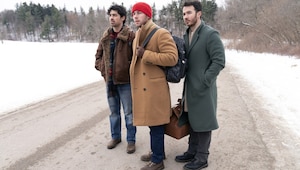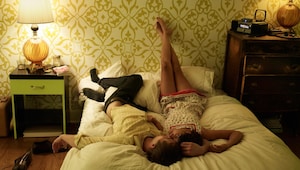"The Most Common Injustice Towards Women Is The Normalisation Of Sexist Behaviour"
In an exclusive chat with Cosmo talks about her first book, the injustices to women she sees around her, what she’d like to change about the world (and why she disapproves of Twilight!), and more…

The recent lockdown was an exceptionally difficult phase for Saisha Uttamchandani. Not just because it had brought to a sudden halt all things ‘normal’ and life as the 16-year-old had known it, but also because it exposed to her some tragic, bitter realities of the society we live in—like domestic violence.

Saisha Uttamchandani
And thus was birthed Saisha’s first book, The Touchy Subjects: An Anthology of Conversation-Starting Poetry and Art. Spotlighting, by way of art and poetry, the various social wrongs committed towards women, Saisha has pledged all sales of the book to NGO SNEHA (Society for Nutrition, Education, and Health Action), to support their Prevention of Violence Against Women and Children Program.

Cover image of the book : The Touchy Subjects by Saisha Uttamchandani
In this candid conversation, the young author opens up to Cosmo to talk about her all that went into her first book, the stereotypes she’d like to see done away with, and more…
Cosmo: Congratulations on The Touchy Subjects: An Anthology of Conversation-Starting Poetry and Art. How did you decide to work on it?
Saisha Uttamchandani: “Thank you. I came across SNEHA’s Instagram posts—about the rising cases of domestic abuse during the COVID-19 lockdown. Being in lockdown myself, my mind was buzzing with ideas around poetry and art, and I decided to make good use of them by empathising with the women in that situation. It started with one poem, but there was just so much that needed to be said that I continued writing until I had my book!”

An illustration from the book: The Touchy Subjects
Cosmo: It is a collection of art and poetry about injustices towards women. What is the kind of research that went into it, and what/who inspired the book?
SU: “The way SNEHA’s campaign gave faces to the problem made the problem even more disturbing to me! So disturbing that I just couldn’t ignore it… During the lockdown, I had been feeling helpless seeing so many aspects of life as we knew it spiral out of control. But on seeing SNEHA’s cause, I knew that I had to do something! I started reading the stories of other women, and tried to convey what they were saying through my poems.
Cosmo: Were there any instances or anecdotes that especially affected you in the process?
SU: “I saw this one video by director Vijay Veermal who was working with SNEHA: it showed how these women were wearing masks and staying indoors to stay safe from the coronavirus. But when they took off their masks, there were bruises and scabs on their faces! That was such a strong message, and it made me think about how these women may be safe from the virus, but still aren’t safe from being abused!”
Cosmo: As a teen, what are some regular injustices or wrongs you see towards women, perhaps even in regular, daily life?
SU: “I think the most overlooked and common injustice towards women is the normalisation of sexist behaviour. People tend to blame women for the way men treat them, pushing the narrative that men aren’t capable of changing and that ‘boys will be boys’. This not only shames women, but also reduces men to the stereotype that men are incapable of controlling themselves. I think the best examples of this issue are catcalling and the sexualisation of young girls.”

An illustration from the book : The Touchy Subjects
Cosmo: Tell us your favourite line/stanza from the book.
SU: “I’d have to say it is: ‘Blaming me for the scorched promenade that is its residue, look what I made you do' . This line is about how abusers tend to manipulate their victims to feel like the abuse is their fault. The ‘scorched promenade’ refers to the trail of bruises and injuries that the abusers leave on their victims.
Cosmo: Who are your role models, the women you look up to?
SU: “It’s the women in my personal life have been my greatest role models, such as my mother! She is an independent woman…has built her career and maintained our family singlehandedly. I think it takes incredible strength to be able to do even one of the two! My friends inspire me, too—each of them has pushed me to be better, and I’m thankful for it.”
Cosmo: And your favourite writers?
SU: “I love Carol Ann Duffy! I’ve never come across a more accurate representation of what it truly is like to be in a relationship—both the ups and the downs. And she is unapologetic about speaking up about stigmatised topics, paving the way for feminist poets and writers to come.
Cosmo: What are your other hobbies, other than writing?
SU: “What I often can’t convey through words, I convey through other creative mediums, such as art, especially painting. I also love reading fiction novels with strong messages, which is how I discovered my passion for writing. A few of my favourites are All The Light We Cannot See, Little Women, and A Tale For The Time Being. I also really enjoy fashion—it’s something I have only recently become interested in, but has turned out to be the simplest way for me to feel like myself!”

An illustration from the book : The Touchy Subjects
Cosmo: And what are your plans for the future?
SU: “Career-wise, I’ll have to give it more thought. But I do know what my goals in my personal life are. My main focus will always be to be someone who sticks up for people who are weaker than me, to be the person for others that I needed during the hard times in my own life.”
Cosmo: Lastly, if you could change one thing about the world today--especially in regards to women--what would it be?
SU: “The romanticisation of abuse! Many young girls such as myself are being taught by the media that certain aspects of abusive relationships are normal, or even romantic. Young, impressionable minds are being exposed to movies (like Twilight) showing dysfunctional, toxic relationships through rose-tinted glasses. Both men and women can have warped views of love because of this. I’d like to change that.”
more from Life

How training for a marathon became the most honest conversation I have ever had with myself

Emily in Paris season 5 is back—and we’re still hate-watching every minute of it

The coolest restaurants across India that deserve to be on your foodie radar

Is 'future faking' the new gaslighting? Decoding this new dating trend

Bad at gifting? Check out these stocking stuffer ideas based on each zodiac sign

15 new Christmas movies you might want to add to your 2025 holiday watch list

Why glycolic acid is your skin's best friend for the winter season

Women have long been having sex on the first date—so why do some of us still feel shamed?

The 'shixie' is a modern take on the 70s shag haircut: 10 style ideas and how to wear the trending look

These are the most Googled dating and relationships questions of 2025—and, er, it’s been an anxious year
